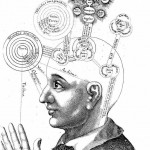
Sep 03, 2012 Inspiring Articles, Podcasts, Books & Blogs on Engagement, Learning & the Brain
As readers of this blog know I am excited about new research on the brain and learning and the links between the emerging field of educational neuroscience and experiential learning principles. Over the last couple of years I have been attending a number of professional conferences on this subject and have run across some great authors in the field who offer accessible information of use to educators of all kinds.
While on the road to facilitate back to school trainings I have had time to engage in some informal professional development on Brain-Based Learning, 21st Century Skills Development and new perspectives on teaching and learning via radio and podcast. Here is a collection of some of my favorite books, articles, websites, radio broadcasts, and podcasts. I hope you find them inspiring as you start the school year and fall programming. Whether you are a K-12 educator, college faculty, or in adult education and training you will find some useful ideas from these great resources:
Last weekend I heard an incredibly inspiring edition of the TED Radio Hour entitled Building a Better Classroom with Sir Ken Robinson, Salman Khan and John Hunter sharing their innovative ideas around teaching and learning. I recommend giving it a listen: http://www.npr.org/2012/06/22/155224654/building-a-better-classroom.
Other articles and links I have been recommending to educators in my workshops include articles on the brain and learning, links to leading educational neuroscientist’s blogs, and resources for developing 21st Century Learners:
Here is a short Article on the emerging field of educational neuroscience from Scholastic Administrator focusing on how new research on the brain and learning can enhance teaching. It includes interviews from some great authors on the subject:
http://bit.ly/S1FxZ5
Dr. Judy Willis is the neurologist and middle school teacher who has written some great books and presents regularly on how new research on the brain and learning can inform our efforts to increase attention, retention, and buy in with our students. She is my favorite author and speaker on the subject. Here are some of her recent online articles:
In these two articles Dr. Willis explores why people are attracted to video games and how we can use the same model game designers use such as blending incremental progress with regular feedback, novelty and challenge to increase attention and retention.
Part One: http://www.edutopia.org/blog/video-games-learning-student-engagement-judy-willis
Part Two: http://www.edutopia.org/blog/how-to-plan-instruction-video-game-model-judy-willis-md
Dr. Willis’ website: www.radteach.com
A recent interview: http://learning.blogs.nytimes.com/2009/10/28/the-straight-dope-the-role-of-dopamine-in-the-brain/
Some rationale for the “partner greetings” activities involving handshakes (Activities to Get Them Moving, Talking, Reflecting & Keep Them Engaged) I have posted on the blog:
New Research Focuses on the Power of Physical Contact in the classroom- NYTimes.com: http://www.nytimes.com/2010/02/23/health/23mind.html?_r=1&em=&adxnnl=1&adxnnlx=1344169136-vmMk6lMRpT2lp91TArpnXA
The 21st Century Fluency Project is another valuable resource to consider when teaching students about accessing information:http://fluency21.com/blog.cfm
I hope you enjoy exploring these resources. Best wishes for a great start to the school year and fall programming. Please weigh in and share your favorite books, blogs and radio shows.




Vishwas
Posted at 07:56h, 04 SeptemberI teach a course in Experiential Education in India. Teachers. are always asking me for this exact information on how brain study supports all this ‘new stuff’ for the classroom. I’m sure all these resources you have pointed to are going to educate me a great deal. Thanks a million times!
Lan LEVY
Posted at 06:03h, 27 DecemberI’m looking for sources to see how neuroscience is applied in facilitation. Thank you very much for your suggestions! All my best wishes for 2013!